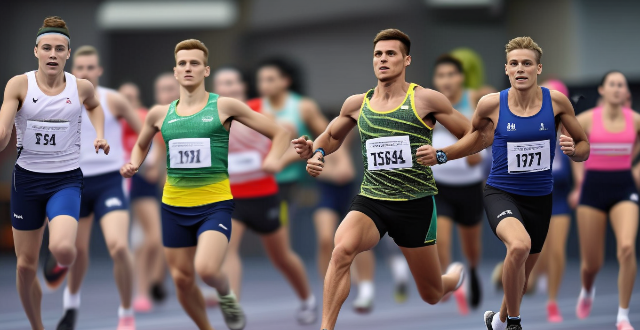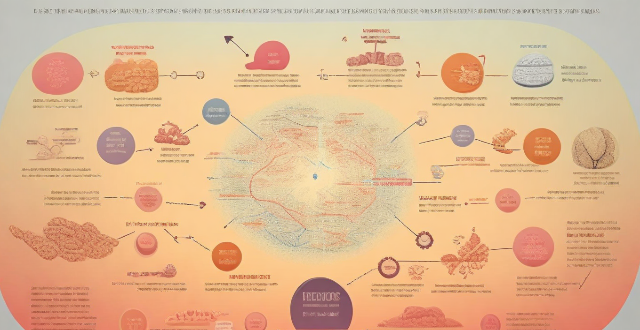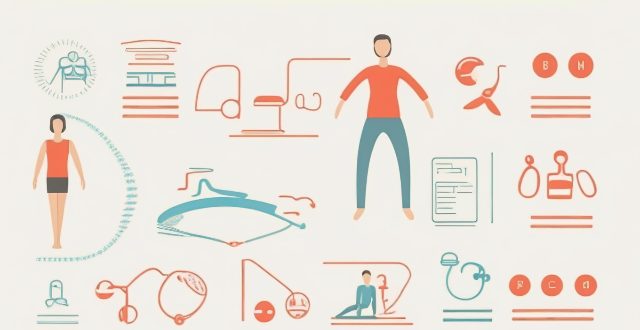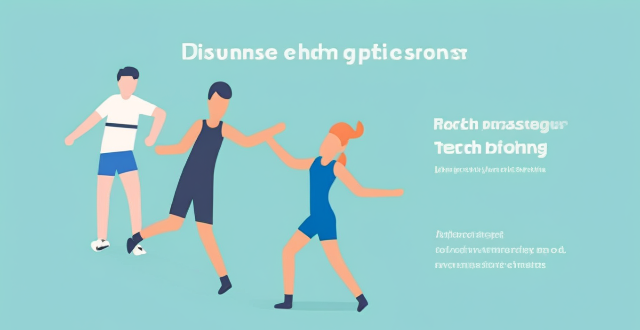Counseling Depression

Can counseling help women overcome postpartum depression ?
Postpartum depression is a serious mental health condition that affects new mothers after childbirth. Symptoms include sadness, anxiety, and exhaustion, making it difficult for women to care for their babies or themselves. Counseling has been shown to be an effective treatment option for PPD. It provides a safe space to express emotions, identifies triggers, builds coping skills, enhances self-care, improves relationships, and supports medication management. If you or someone you know is experiencing symptoms of postpartum depression, consider seeking professional counseling to get the support and guidance needed to overcome this challenging condition.

How can sport psychology counseling help with mental health issues such as anxiety and depression in athletes ?
Sport psychology counseling is a valuable resource for athletes dealing with mental health issues such as anxiety and depression. It involves understanding the problem, setting goals, managing stress, building confidence, developing emotional intelligence, and fostering social support. Tailored approaches, consistency, and patience are key to achieving long-term success in improving both mental well-being and performance.

How does sport psychology counseling differ from traditional counseling ?
Sport psychology counseling and traditional counseling are two distinct fields that share some similarities but also have key differences. The primary focus of sport psychology counseling is on helping athletes improve their performance by addressing mental and emotional factors that affect their sports performance, while traditional counseling focuses on helping individuals deal with a wide range of personal and emotional issues. The approach used in sport psychology counseling includes techniques such as goal setting, visualization, relaxation techniques, and cognitive restructuring, while traditional counseling uses a variety of therapeutic approaches to help individuals deal with their emotional and psychological issues. The primary goal of sport psychology counseling is to help athletes improve their performance by addressing mental and emotional factors that affect their sports performance, while the primary goal of traditional counseling is to help individuals improve their overall well-being by addressing a wide range of personal and emotional issues. Sport psychology counseling is typically sought by athletes who want to improve their performance or overcome obstacles that are hindering their success, while traditional counseling is sought by individuals who are dealing with a wide range of personal and emotional issues.

How can counseling help women dealing with infertility-related stress ?
Counseling is crucial for women dealing with infertility-related stress. It helps identify emotional distress, address mental health concerns, build resilience and coping strategies, navigate medical treatment options, and foster hope and healing. By providing emotional support and promoting self-care practices, counseling empowers women to face the challenges of infertility with strength and courage.

How can parents recognize and respond to signs of postpartum depression ?
Recognizing Signs of Postpartum Depression (PPD) is crucial for new mothers to seek help if needed. Common signs include persistent sadness, difficulty bonding with the baby, changes in appetite or sleep patterns, irritability, withdrawal from social activities, and thoughts of harming oneself or the baby. If you notice any of these symptoms, take action by talking to your doctor, seeking support from loved ones, joining a support group, taking care of yourself, and considering professional help. Remember, seeking help is not a sign of weakness; PPD is a real medical condition that requires attention and treatment.

What is sport psychology counseling ?
Sport psychology counseling, a specialized area ofSport psychology counseling, a specialized area of mental and emotional aspects of athletic a specialized area of psychology, focuses on the mental and emotional aspects of athletic performance. It involves working with athletes and coaches to improve mental skills, enhance performance, and manage stress related to sports. Key areas include mental skills training, performance enhancement, stress management, team building, injury rehabilitation, and career transition. Benefits include improved performance, increased confidence, reduced anxiety, better teamwork, effective coping mechanisms, and personal growth. Sport psychology counseling is crucial for enhancing an athlete's mental well-being and physical performance.

Are there any risks or drawbacks associated with sport psychology counseling ?
Sport psychology counseling is a specialized form of psychological intervention that aims to enhance athletic performance, improve mental toughness, and foster personal growth in athletes. While the benefits of sport psychology counseling are well-documented, it is essential to consider any potential risks or drawbacks associated with this type of intervention. The risks and drawbacks include: - Lack of qualified professionals - Overreliance on counseling - Inappropriate interventions - Ethical considerations - Financial costs - Cultural differences To mitigate these risks, athletes should seek out qualified professionals with appropriate certifications and experience in sport psychology counseling, communicate openly with their counselor about their goals and concerns, choose counselors who prioritize ethical practices, explore options such as group sessions, online counseling, or sliding scale fees to reduce costs, and counselors should strive to understand and respect the cultural backgrounds of their clients and adapt their approaches accordingly. By addressing these issues proactively, athletes can maximize the benefits of sport psychology counseling while minimizing any potential negative effects.

What are the benefits of seeking sport psychology counseling for athletes ?
Sport psychology counseling provides athletes with numerous benefits, including improved performance, stress management, mental toughness, enhanced team dynamics, and personal growth. Athletes can develop better focus, confidence, and goal-setting abilities, learn to manage anxiety and pressure, cope with adversity, and improve communication and leadership skills within their teams. Additionally, sport psychology counseling promotes self-awareness, life skills, and balance in an athlete's life. Seeking the help of a sport psychology professional can significantly contribute to an athlete's overall well-being and success in their sport.

How long does it typically take to see results from sport psychology counseling ?
Sport psychology counseling aims to improve athletic performance and mental skills. The timeline for seeing results varies based on factors like individual differences, goal specificity, commitment level, and support systems. Short-term results include increased awareness and improved focus within 1-3 months, mid-term results such as enhanced confidence and performance within 3-6 months, and long-term results like sustained success and deepened self-understanding after 6+ months of consistent counseling. Working with a qualified sport psychology professional and maintaining commitment can maximize potential for success in sports and life.

Can regular physical activity prevent depression ?
Regular physical activity can reduce depression risk by releasing endorphins, improving sleep, and boosting self-esteem. Start with 30 minutes daily of activities like walking or swimming, and consider joining a fitness class for motivation. Gradually increase intensity and listen to your body to avoid overexertion.

How can counseling help women cope with body image issues ?
Counseling can help women cope with body image issues by identifying the root cause, challenging negative thoughts, developing healthy coping mechanisms, building self-esteem, addressing mental health concerns, and providing ongoing support.

Can exercise be a substitute for psychotherapy in treating mild depression ?
This article explores the potential of exercise as a treatment for mild depression and its possible limitations. While exercise can boost mood, reduce stress, improve sleep quality, and enhance self-esteem, it may not address the cognitive aspects of depression or be suitable for everyone. Therefore, it should not be considered a complete substitute for psychotherapy in all cases.

How much exercise is needed to reduce anxiety and depression symptoms ?
Exercise has been shown to reduce anxiety and depression symptoms, with moderate-intensity aerobic exercise for at least 150 minutes per week being effective. However, individual factors such as age, gender, health condition, and lifestyle can affect the amount of exercise needed. It is important to choose enjoyable and sustainable activities for long-term use, and seek professional help if struggling with mental health issues.

Is there a link between exercise and reduced risk of depression ?
**Link Between Exercise and Reduced Risk of Depression: A Comprehensive Overview** Depression is a prevalent mental disorder that affects millions globally. While its exact cause remains unclear, various factors, including lifestyle choices like exercise, have been studied for their potential to reduce the risk. This article delves into the evidence supporting the link between exercise and reduced risk of depression, exploring studies on animals and humans, potential mechanisms underlying this relationship, and practical tips for incorporating exercise into one's routine. **Studies on Animals:** Research has shown that regular exercise in rats can increase BDNF levels, a protein linked to the development and treatment of depression. This suggests that exercise may help reduce depression risk by boosting BDNF levels. **Studies on Humans:** Numerous studies have investigated the human connection between exercise and depression. A meta-analysis found exercise significantly reduces depressive symptoms compared to no treatment or placebo interventions. Another longitudinal study showed that regular physical activity lowers the likelihood of developing depression compared to sedentary behavior. **Potential Mechanisms:** Several mechanisms could explain how exercise reduces depression risk: * **Neurobiological Changes:** Exercise increases BDNF levels, promoting neuronal growth and improving mood. It also alters neurotransmitter levels involved in mood regulation. * **Endocrine Response:** Exercise stimulates endorphin release, producing pleasure and reducing pain perception, contributing to improved mood. * **Psychosocial Benefits:** Regular physical activity provides social interaction opportunities, enhancing mental health. It also improves self-esteem and body image. * **Stress Reduction:** Exercise reduces stress by decreasing cortisol secretion and promoting relaxation, which helps prevent depression since stress is a known risk factor. **Practical Tips:** To reduce your depression risk through exercise, start slowly with low-intensity activities, find enjoyable exercises, set realistic goals, make it social, and monitor your progress. In conclusion, ample evidence supports a link between exercise and reduced risk of depression. Both animal and human studies demonstrate the mood-enhancing effects of regular physical activity. By understanding the potential mechanisms and incorporating exercise into your routine, you can potentially lower your risk of developing depression and improve your overall well-being.

Can sport psychology counseling be beneficial for non-athletes as well ?
Sport psychology counseling can be beneficial for non-athletes as well. The techniques used in sport psychology, such as cognitive restructuring, relaxation training, and visualization, can help individuals manage stress, anxiety, and depression. Additionally, these techniques can enhance performance in various areas of life, develop better coping skills, and increase self-awareness. By applying the principles and techniques used in sport psychology to everyday life situations, individuals can improve their mental health, enhance their performance, develop better coping skills, and increase their self-awareness.

Can climate change exacerbate mental health issues such as depression and anxiety ?
Climate change can exacerbate mental health issues such as depression and anxiety through various pathways, including extreme weather events, displacement and loss of home, food insecurity, and economic stress. It is crucial for policymakers and healthcare professionals to recognize the connection between climate change and mental health and implement strategies to mitigate the adverse effects of climate change on mental well-being.

What techniques and strategies are commonly used in sport psychology counseling ?
The text discusses techniques and strategies in sport psychology counseling, which include goal setting, visualization and imagery, self-talk and affirmations, mindfulness and meditation, and breathing techniques. Goal setting helps athletes stay motivated and focused, while visualization and imagery build confidence and reduce anxiety. Self-talk and affirmations enhance self-confidence and motivation, while mindfulness and meditation improve mental clarity and resilience under pressure. Breathing techniques manage stress, anxiety, and tension. Incorporating these methods into training and competition preparation can help athletes achieve their full potential.

How can sport psychology counseling help athletes improve their performance ?
Sport psychology counseling is a specialized field that focuses on the mental and emotional aspects of athletic performance. It aims to enhance an athlete's mindset, motivation, and overall well-being to improve their sporting outcomes. Here's how it can be beneficial: Goal Setting and Motivation: Sport psychologists help athletes set Specific, Measurable, Achievable, Relevant, and Time-bound goals. This clarity in objectives boosts motivation and directs efforts toward improvement. Confidence and Self-Esteem Building: Coaching athletes to replace negative self-talk with positive affirmations enhances their confidence and self-belief. Anxiety and Stress Management: Techniques like deep breathing, progressive muscle relaxation, and mindfulness can reduce anxiety levels before and during competitions. Focus and Concentration: Improving an athlete's ability to focus on relevant cues and block out distractions is crucial for peak performance. Team Dynamics and Interpersonal Skills: Enhancing communication within teams fosters better cooperation and understanding among athletes. Mental Toughness and Resilience: By preparing mentally for setbacks, athletes learn resilience and are better equipped to handle difficulties when they arise. Recovery and Balance: Adequate rest is essential for physical recovery and maintaining mental sharpness. Sport psychologists can guide effective strategies. Helping athletes achieve a balance between their sport and personal lives prevents burnout and keeps them motivated.

What are the most common mental health issues faced by women ?
Women can experience a range of mental health issues throughout their lives, with some conditions being more commonly reported among them. These include depression, anxiety disorders, eating disorders, posttraumatic stress disorder (PTSD), perinatal depression and anxiety, premenstrual dysphoric disorder (PMDD), and borderline personality disorder (BPD). The prevalence and presentation of these issues can be influenced by cultural, societal, and biological factors, as well as access to care and societal stigma.

What are the best ways to manage anxiety and depression in women ?
The text discusses several strategies for managing anxiety and depression in women, emphasizing the importance of seeking professional help, practicing self-care, building a support network, making lifestyle changes, and considering medication. It highlights different types of therapy and medical professionals to consult, as well as various self-care practices like exercise, mindfulness meditation, and journaling. The article also touches on the significance of social connections and time management in managing mental health. Finally, it provides information on antidepressants and stress reduction techniques, advising readers to work closely with healthcare professionals to find the best approach for their needs.

Is it true that working out can improve your mood ?
Working out can improve your mood by releasing endorphins, boosting self-esteem, improving sleep quality, providing social interaction, and reducing symptoms of depression.

How does environmental stress from climate change influence mental health disorders such as anxiety and depression ?
Climate change is a global issue that not only affects the environment but also has significant implications for human health, including mental health. Environmental stress from climate change can exacerbate existing mental health disorders such as anxiety and depression or even trigger new ones. One of the most direct ways in which climate change impacts mental health is through increased exposure to natural disasters such as hurricanes, floods, wildfires, and heatwaves. These events can cause traumatic experiences, loss of homes and communities, displacement, and financial hardship, all of which are risk factors for developing mental health disorders like anxiety and depression. Climate change affects ecosystem services, such as air and water quality, food production, and outdoor recreational opportunities, all of which have been linked to mental well-being. The socioeconomic impacts of climate change, such as job loss in industries affected by climate policies or extreme weather events, can lead to financial insecurity and social disruptions that exacerbate mental health conditions. Anticipatory anxiety about the potential consequences of climate change can also contribute to chronic stress and exacerbate anxiety and depressive symptoms. Coping mechanisms and building resilience are essential for managing the psychological impacts of environmental stress.

How do sports psychologists assist coaches in understanding and managing their athletes' mental health ?
Sports psychologists assist coaches in managing athletes' mental health by providing education, individual assessments, mental skills training, counseling, team building activities, crisis intervention, and feedback. This support helps coaches create a supportive environment for athletes to perform at their best mentally and physically.

Can anyone benefit from the services of a sports rehabilitation center, or is it only for athletes ?
Sports rehabilitation centers offer a range of services, including physical therapy, athletic training, massage therapy, nutrition counseling, and mental health support, to help individuals recover from sports-related injuries and improve their overall physical health. These centers can benefit anyone who has experienced a sports injury or is looking to improve their physical fitness, not just athletes.